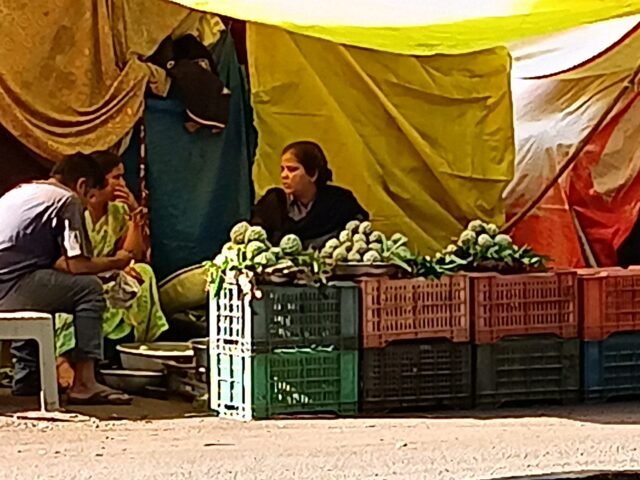WARANGAL: From the very start of the much-awaited custard apple season, consumers in Warangal district have been facing steep prices as the supply of the popular fruit has sharply declined.
Once known as the poor man’s apple for its affordability and abundance, custard apples are now selling at prices comparable to premium store-bought varieties, with each fruit costing between ₹30 and ₹40 depending on size. The surge is attributed to the large-scale destruction of fruit-bearing trees due to real estate expansion and extensive damage caused by monkey menace.
The custard apple trade serves as a vital source of seasonal income for poor families and small traders during the three-month rainy season. These traders collect wild fruits from mandals such as Mahabubabad, Mulugu, and Jangaon and sell them in busy areas of Warangal, Hanamkonda, and Kazipet.
While vendors currently earn between ₹2,000 and ₹10,000 per day, this comes at the cost of high prices for consumers. Earlier, 100 fruits could be purchased for ₹150-₹200, but now the same quantity costs nearly ten times more. Large fruits are being sold at three to four for ₹100. Traders, however, say they are struggling with scarcity despite higher earnings.
Vendors at Hanamkonda’s Public Garden area told Deccan Chronicle that although prices are high, their overall profit is limited as they have fewer fruits to sell. They said losses from monkey attacks and deforestation often outweigh the gains, forcing them to work harder to find enough fruit.
Some determined farmers have even hired guards to protect their trees from monkeys, maintaining round-the-clock vigilance. While this helps secure better harvests of 2,000 to 4,000 fruits, the added security costs further push up market prices.
The decline in custard apple yield is mainly due to two interconnected issues real estate development and monkey menace. Trees growing on field borders, uncultivated lands, and hill slopes are being destroyed as developers use heavy machinery to clear land for construction, erasing a natural source of livelihood and nutrition.
In rural areas, large troops of monkeys damage fruit-bearing trees by plucking flowers and unripe fruits, preventing them from maturing. Farmers who try to cultivate the fruit in their fields often face severe losses.
Local resident and consumer N. Bhaskar voiced his frustration over the rising prices, saying, “I love Sitaphal, but how can a common fruit cost so much? The government must protect our forests. It’s a disgrace that we’re losing our traditional fruits to unchecked construction and the monkey problem.”
Despite the high prices, custard apples remain in demand for their taste and health benefits, which include promoting heart, eye, and digestive health. The situation underscores the urgent need for government intervention to protect the region’s green cover, manage the monkey population, and safeguard the livelihoods of thousands of seasonal workers.







